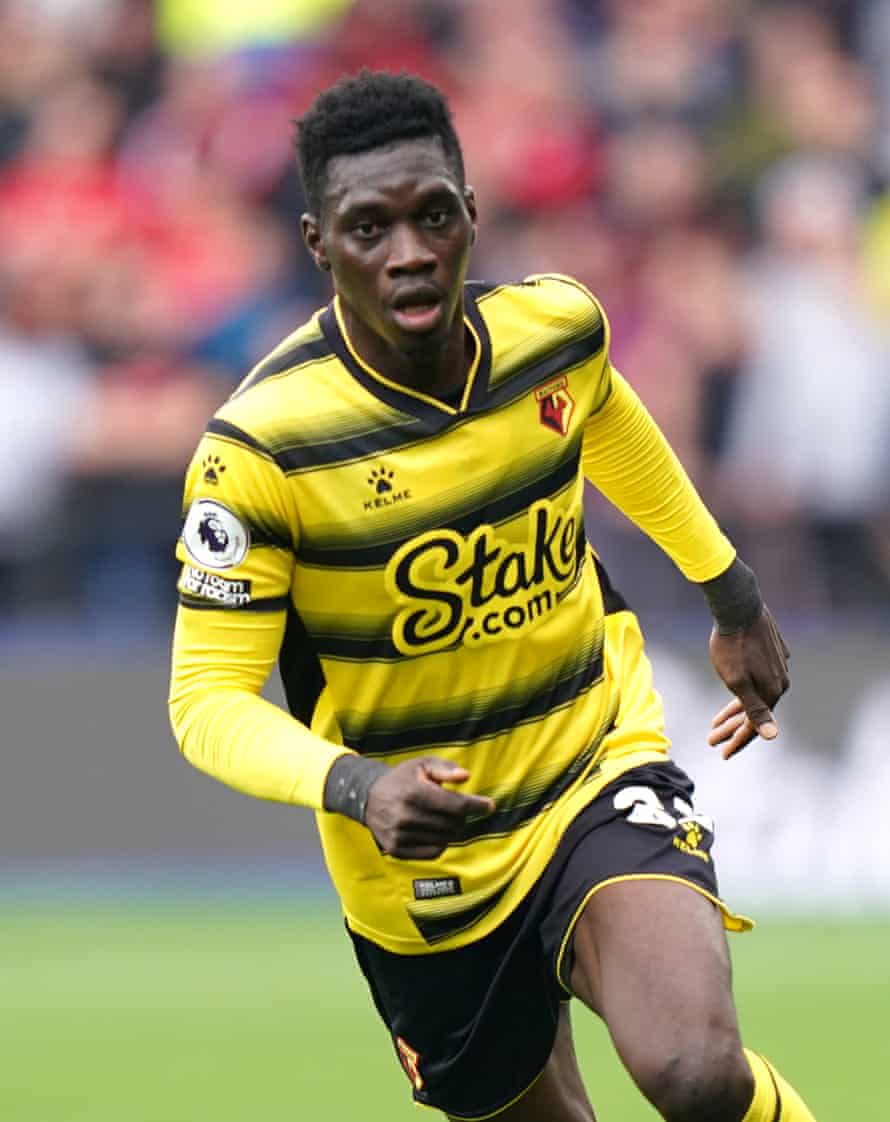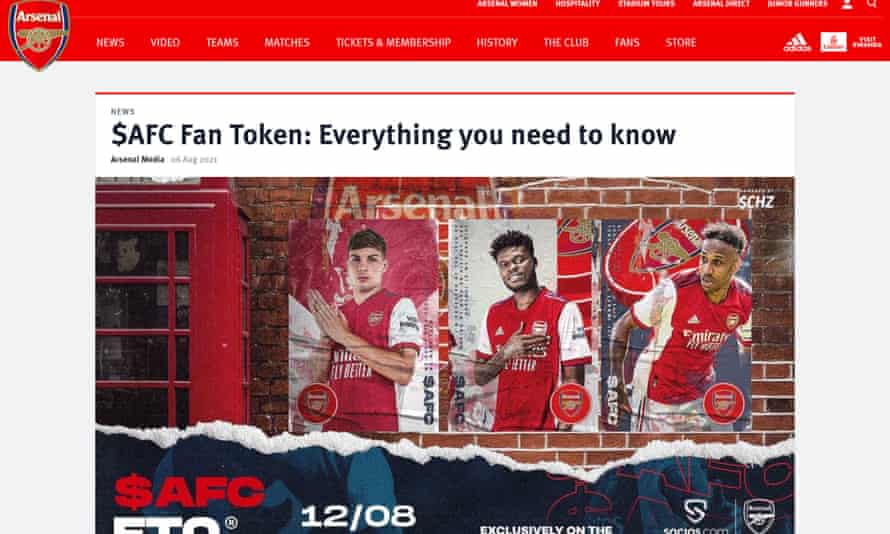When FC Barcelona took to the pitch for the 2021 Spanish Super Cup final, it wasn’t just about the trophy.
thousands of Blaugrana The fans also observed the market for the FCB fan token, the club’s own cryptocurrency. Socios, the web-based platform that pioneered fan tokens, had promised to ‘burn’ 20,000 chips for every goal Barcelona scored – and 40,000 if they won the trophy.
In theory, success on the pitch would increase the scarcity of the currency and increase its value. Barcelona lost the game in training and apart from the passion for football it didn’t make much of a difference anyway. With 3.5 million tokens in circulation, not to mention millions more the club has set aside for future spending, a few thousand here or there wouldn’t have moved the needle.
questions and answers
What is cryptocurrency?
show
Cryptocurrencies are an alternative way to make payments with cash or credit cards. The technology behind it allows the “money” to be sent directly to others without it having to go through the banking system. Because of this, they are outside the control of governments and not regulated by financial regulators – and transactions can be conducted in a way that remains reasonably pseudonymous.
When you own a crypto asset, you control a secret digital key that allows you to prove to anyone on the network that a certain amount of that asset is yours. When you spend it, you’re letting the whole network know you’ve transferred ownership of it, and using the same key to prove you’re telling the truth. Over time, the history of all these transactions becomes a permanent record of who owns what: this record is known as the Blockchain.
One of the first and biggest cryptocurrencies, Bitcoin has been on a wild ride since its inception in 2009, sometimes skyrocketing in value as investors flocked — and occasionally crashed. Dogecoin — which started out as a joke — has also seen a stratospheric surge in value.
Skeptics warn that the lack of central control makes crypto assets ideal for criminals and terrorists, while libertarian monetarists revel in the idea of a currency with no inflation and no central bank.
The whole cryptocurrency concept has been criticized for its environmental impact, as “mining” new coins requires huge reserves of energy and the associated carbon footprint of the entire system.
Richard Partton and Martin Belam
But the stunt symbolized something more, the budding love affair between soccer and cryptocurrency, an alliance that promises new revenue streams for a game already awash with cash but always wanting more.
Football finance expert Kieran Maguire believes that clubs have become accustomed to crypto as revenue from other sources is gradually leveling off after decades of reliably increasing.
“Football clubs have realized that we are now at maximum broadcast revenues and can only look forward to modest growth,” he said.
“As far as commercial sponsors go, we see contract extensions but not more money. The only way to increase matchday sales is to raise prices and fans are reluctant.”
Manchester United – believe the club or not – claim to have 1.1 billion fans on the planet. With sales of £488m in 2019-20, that’s just 45p per year per fan.
“Clubs are like, ‘Can we ‘find another way to make money out of this huge fan base?’ This is where tokens come in.”
When AC Milan launched a token in early 2021, it raised $6m (£4.4m) in less than an hour, or around 12% of the value of the club’s record signing Leonardo Bonucci. The Paris Saint-Germain token, the most valuable, has a market value of $45 million.
However, in the murky and unregulated world of crypto, it’s hard to know how much clubs are actually making. Socios said it sold $300 million worth of fan tokens last year, but declined to say how much of that went to the clubs it works with.
Other platforms like Binance are also entering the fan token market, suggesting there is room for growth, especially given that only a few dozen clubs have entered the market in any meaningful way.
Pedro Herrera, senior blockchain analyst at DappRadar, a marketplace for blockchain-related apps, said most fans buy tokens for related perks, like ties to win a signed shirt.
“It’s a win for the fans because they feel more involved; it’s a win for the team because it adds a layer of monetization; and it’s a win for them [crypto] Industry because you attract the masses and it’s one step closer to mass adoption.
Maguire isn’t against crypto but adds a more skeptical tone: “Many fans love crypto and in its purest form it’s awesome. Banks have been overcharging people for transaction fees for years, and if crypto can lower those fees, that’s fantastic.”
“The problem is when unscrupulous traders, particularly via social media, try to take advantage of fans who believe a token is a serious investment product rather than a glorified collectible.
“Those are magic beans. As long as it’s sold as a digital panini card, it’s fine. But if it’s viewed as a form of investment, it’s moving into uncomfortable territory.”
“It’s unregulated, it’s volatile and can be manipulated by people who own large amounts of wealth.”
However, fan tokens are just one paragraph in football’s rapidly evolving crypto saga.
In 2021, crypto sponsors surged into football and were welcomed with open arms by money-hungry clubs, leagues, and players.

Exchange app Crypto.com sponsors Italy’s Serie A, one of the most glamorous leagues in the world, while Socios is Internazionale’s shirt sponsor. EToro, a trading platform that facilitates investments in multiple cryptocurrencies, has deals with more than half of the clubs in the Premier League.
It is understood Southampton players have been offered the option to receive bonuses in Bitcoin as part of a £7.5million annual deal with Coingaming Group. And in January 2021, forward David Barral made history when he became the first player in a major league to be signed with bitcoin, albeit in Spain’s third division at Internacional de Madrid.
Far better known gamers and ex-pros like Paul Pogba and John Terry are also promoting cryptocurrencies, trading platforms and non-fungible tokens (NFTs) – the controversial digital art form.
This shouldn’t come as a surprise given the reach big-name stars have through social media and the money they can make from promotions. Other partnerships may be more unexpected. Visitors to former Republic of Ireland international Tony Cascarino’s Twitter profile may have been caught flat-footed by the former striker’s sudden change of pace in mid-2021. One moment he was poring over the latest Premier League developments, the next he was preaching about blockchain bank Babb (no relation to former Irish teammate Phil) and musing that the “crypto market is on fire”.
Even in its infancy, the reputational risks of this new trading pact between crypto and soccer have become all too clear. Last year, Manchester City’s deal with a mysterious company called 3Key Technologies fell through in days when it emerged that nobody seemed to know anything about the company or its executives.

In December, Arsenal were slapped on the knuckles by the Advertising Standards Authority (ASA), which banned a club advertisement that allegedly took advantage of fans’ inexperience or credulity, trivialized investing in crypto assets, misled consumers about the risk of investing and not to clarify that the ‘token’ was a crypto asset”.
“For those in esports looking for sponsorships, this is a whole new market of opportunity, but it’s a bit of a land mine to deal with,” said Bill Esdaile, managing director of sports marketing agency Square in the Air.
“My gut feeling is that such a small percentage of people understand how [crypto] works that too many decisions are made on trust, thinking that when [crypto firms] say they have the money, they do.”
The amounts offered appear to be increasing.
Premier League contenders Watford may have the biggest crypto deal in the country, a shirt sponsorship from Stake.com. The site offers crypto gambling, which is not legal in the UK but could appeal to hundreds of millions of viewers of the league around the world.
The arrangement even means Watford players’ shirtsleeves will sport the logo of Dogecoin, a “hoax” currency whose value has fluctuated wildly, often in response to tweets from Tesla multi-billionaire Elon Musk.
Kieran Maguire estimates the shirt deal could be worth up to £8million based on the typical value of such partnerships, while a Watford insider told MSN in August that the Dogecoin sleeve ad brought £700,000 into the mix.
Such amounts will become increasingly difficult for clubs to ignore, he believes, especially if the government embarks on a major overhaul of gambling regulation that could see football lose the money cow of shirt deals to betting companies.
“She [clubs] If you see the token market as slightly offside, it will not be picked up by gambling valuation and will help close the gap,” says Maguire.
“These £5m to £8m deals could be replaced by NFT advertising and crypto.”
in one newer paper, warned psychology researcher and gambling expert Dr. Phil Newall warns football sponsorship might swap one risky product for another.
“Research has found that cryptocurrency traders are likely to experience problematic gambling symptoms and has identified psychological similarities between cryptocurrency trading and online sports betting,” Newall wrote. He believes removing gambling ads could create more space to legitimize equally dangerous products.
With them burning money in the pursuit of fame, it seems unlikely that clubs will worry about it.

